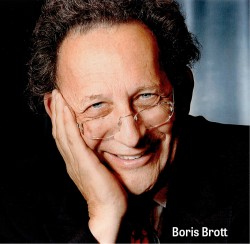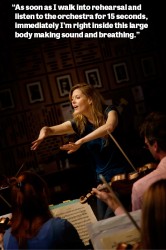#32 - Jamie Parker
The Gryphon Trio’s ebullient pianist, Jamie Parker, is the most recent addition to the Conversations@The WholeNote video series. Publisher David Perlman continued his casual encounters with Toronto’s musical players in a wide-ranging interview that took place shortly before Parker and his chamber music partners, violinist Annalee Patipatanakoon and cellist Roman Borys, gave their annual Music Toronto concert at the St. Lawrence Centre February 26.
Props master Perlman had an informal questionnaire in the form of a deck of WholeNote cards with a topical allusion written on the back of each. The cards moved the chat in unexpected but entertaining and edifying directions. In response to “Music I Like,” for example, Parker spoke about one of the things that gives him and his wife (who have two boys, seven and nine) great pleasure. “To see the boys able to identify and sing along some Beatles tunes and also some Beethoven symphonies makes me very proud as a parent,” he revealed.




